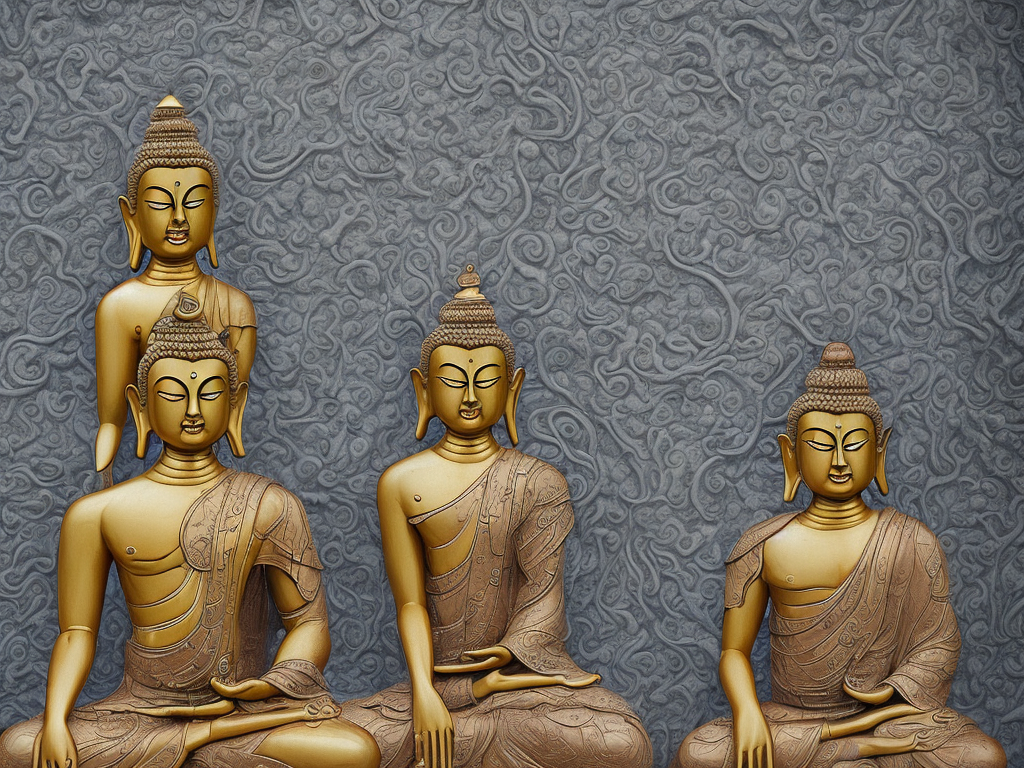
Mahavira and Buddha are two of the most influential and revered religious figures in Indian history. Both of them lived around the same time and preach similar philosophical concepts, such as universal compassion and non-violence. Despite many similarities, Mahavira and Buddha preached different paths to the ultimate spiritual goal. In this article, we will discuss the primary differences between Mahavira and Buddha.
Mahavira was a contemporary of Buddha, who founded Jainism, whereas Buddha founded Buddhism. Both of them were born in different regions of India, and their personal experiences and teachings were also different.
Birth and Family
Mahavira was born in 599 BC in Kundagrama, present-day Bihar, India. His father was Siddhartha and his mother Trishala was a princess of the Kshatriya clan. Mahavira grew up in a privileged environment and later renounced everything to become an ascetic.
Buddha was born in 563 BC in Lumbini, present-day Nepal. His father was Suddhodhana, king of the Shakya clan, and his mother was Queen Mayadevi. Buddha was also born in a privileged environment but later chose to leave behind everything to find the truth about existence.
Teachings
The primary difference between Mahavira and Buddha is their approach to seeking enlightenment. Mahavira's, teachings were based on strict asceticism or renunciation from all worldly pleasures, including indulging in food, sex, and other sensory pleasures. His teachings emphasized the importance of physical and mental austerity to reach spiritual liberation or Moksha.
Buddha's, teachings, however, offered a middle ground approach between asceticism and indulgence. His teachings focused on the practice of the Eightfold Path, which includes ethical conduct, mental discipline, and wisdom. Buddha believed that liberation could be achieved without complete renunciation from the material world.
Belief System
Another crucial difference between Mahavira and Buddha is their belief system. Mahavira's, philosophy revolves around the concept of soul or Jiva. According to Jainism, every living being possesses a soul, which is eternal, and its ultimate goal is to attain liberation from the cycle of birth and death.
Buddha, on the other hand, rejected the idea of soul or self. He believed that everything is impermanent, including the notion of self. Buddhists seek liberation from attachment to this impermanent world through mindfulness, meditation, and non-attachment.
Non-Violence
Both Buddha and Mahavira are known for preaching non-violence or ahimsa. However, the meaning and practice of non-violence differ between the two religions.
Jainism takes a more extreme approach to non-violence. Mahavira believed in absolute non-violence towards all living beings, including insects, animals, and humans. Jains practice strict vegetarianism, avoid harm to any living creature, and even wear masks to avoid inhaling insects.
Buddha's view on non-violence was more practical. His teachings emphasized non-harming, but he understood that violence is often inevitable in the physical world. Many contemporary Buddhists interpret this concept as a prohibition of violence under ordinary circumstances but accept self-defense, war, and capital punishment when circumstances warrant them.
Role of God
Mahavira and Buddha also differ in their conception of God. In Jainism, gods are seen as higher beings who have already achieved spiritual liberation or Moksha. They cannot be prayed to or intervened by the individual on their spiritual path.
In Buddhism, there is no belief in a supreme god or gods. Gautam Buddha rejected the notion of a creator or a permanent divine entity but did recognize the existence of different realms of existence.
Reincarnation
Both Mahavira and Buddha believed in reincarnation, but their view on the process differs significantly. Jainism has a complex belief system of karma, which involves every action and thought producing a corresponding result. Karma influences an individual's future life or rebirth.
In Buddhism, there is a similar emphasis on karma, but the concept of reincarnation is viewed differently. Buddhists see it as a continuity of mental states rather than a soul or Jiva. Buddha emphasized that the individual's future is based on the karma generated by their thoughts, speech, and actions.
Conclusion
In conclusion, Mahavira and Buddha are two of the most influential religious figures in Indian history. Their teachings have influenced millions of people worldwide and have left a profound impact on Indian culture to this day. Although their teachings have many similarities, the differences between them are significant. The primary difference is their approach to seeking enlightenment, with Mahavira advocating for extreme asceticism, while Buddha teaches a middle path to enlightenment. Both have an emphasis on the practice of non-violence, which differs in its practice and interpretation. Finally, their views on God, reincarnation, and karma differ significantly. However, despite these differences, both the religions share the same ultimate objective: liberation from attachment to the material world, leading to complete inner peace and enlightenment.
 Self-Instruct
Self-Instruct